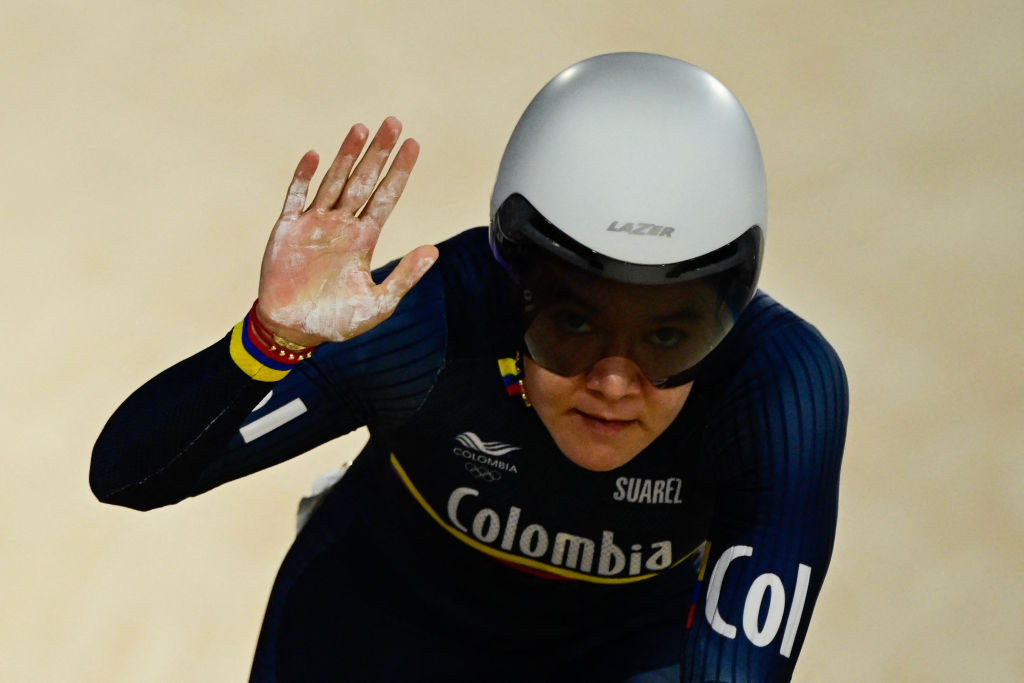Exclusive Q&A: Nicole Cooke
Former Olympic champion on her career, the struggles in women's cycling, and British Cycling
The latest race content, interviews, features, reviews and expert buying guides, direct to your inbox!
You are now subscribed
Your newsletter sign-up was successful
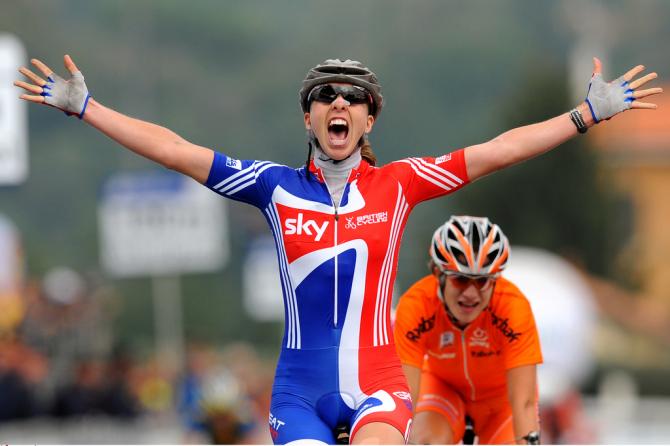
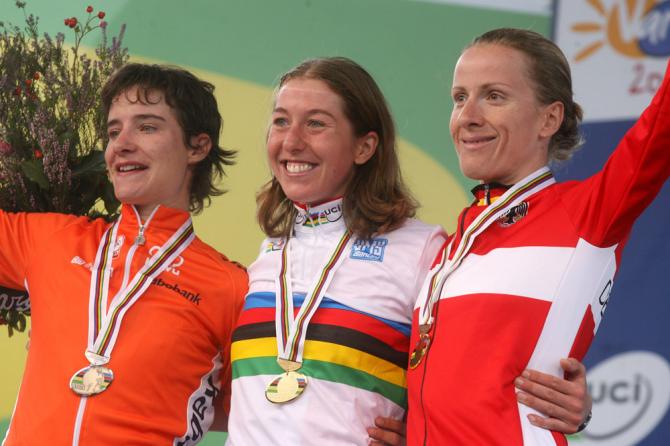
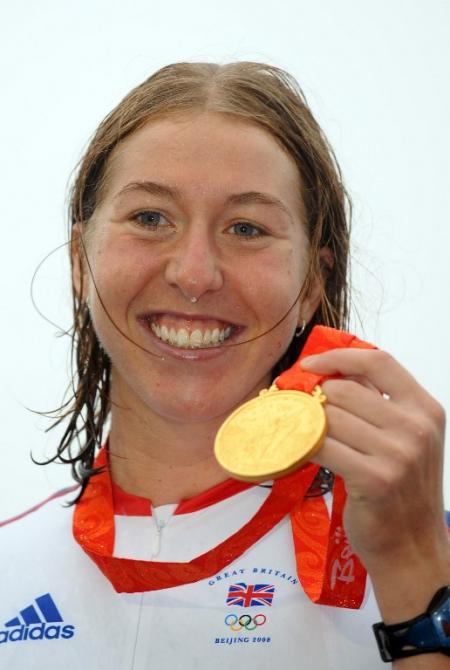
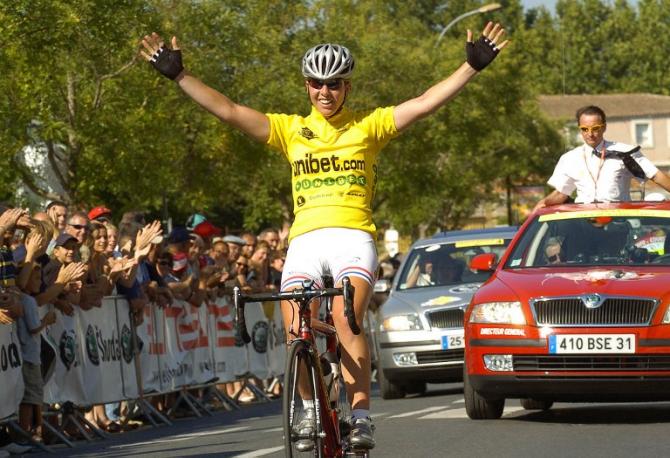
Nicole Cooke retired at the start of 2013, bringing to an end a highly successful and at times controversial career. Currently studying for her Masters degree at Cardiff University, Cooke, who won gold at the Beijing Olympic Games in 2008, recently took time out to talk to Cyclingnews.
We caught up with her at a book signing for her autobiography in Bath and talked about her career, the difficult relationships she had with cycling’s biggest authorities, the struggles within women’s cycling and doping.
Cyclingnews: How's retirement going?
Nicole Cooke: It's been brilliant. It has been a bit more action-packed than perhaps I expected and the first few months in 2013 were fairly low-key, thinking about what I was going to do. I wanted to study and eventually I took the plunge and got sorted to do a masters degree in business administration which I started last September at Cardiff University.
And within a couple of months of retiring I met with Simon & Schuster who were interested in doing the book after seeing my retirement statement, and last year, the whole autobiography idea took off.
CN: How was your retirement statement received?
NC: Very, very well. In the actual press conference it was kept quiet as to what was going to happen but there was applause at the end and I think from all the articles and commentaries afterwards people were ready to hear some common sense being talked.
The latest race content, interviews, features, reviews and expert buying guides, direct to your inbox!
CN: Reading it I suspect it still came as somewhat a shock to some people, as apart from legal reasons you didn't seem to pull any punches
NC: No, at that time it might have been my parting shot to cycling. I wasn't sure it I was going to do an autobiography so I really wanted to make sure that if that was going to be it, that I said what I wanted to say.
CN: So what made you then do the autobiography?
NC: Well, the interest from a prestigious publishing company, who really wanted to do it, and the fact that I was going to get the backing was very reassuring and I felt that there were some things and some episodes that would really be done justice if they were brought out in a book where there really was time to develop. And I think it's brilliant to have the record for me of what was obviously a very special time in my life and hopefully for other people to look at that and learn from it and its a kind of record of history as it was.
CN: Why did you decide to retire when you did, I'm not sure you specifically answer it in the book?
NC: When I was in my teens and thinking what would be the best cycling career ever, it was could I race for ten years up to when I'm 30 ,which for me going into professional racing at 18, racing to win from the very beginning, so if I could have ten years at the top that really would have been everything I wanted and getting to London 2012 I really felt it was a great time to call it a day. I had achieved everything I wanted to and I think when the time came I also had quite a list of things I wanted to do and interests outside of cycling
CN: Are you planning on getting back on the bike?
NC: Yes, I still ride out to see friends, and the bicycle as a mode of transport is still a preferred way. I'd like to go on some cycling holidays.
CN: Are you still in touch with any of your former teammates?
CN: How did you find writing the book?
CN: Did you have a ghost writer?
But it also gave me a chance to revisit events, particularly with the British Cycling Federation, and actually see how many chances there were to develop the women's British road team. The 1998-99 start, the 2002 start that didn't happen, the 2003 start that didn't happen, the 2005-6 start, the 2007. Five chances in all...
CN: How do you feel now about how BC treated you? It's hard from the book to work about why they treated you so badly...
CN: Has it changed?
CN: Do you think the culture has now changed both in British and women's cycling in general?
CN: Have you thought of mentoring any young cyclists?
CN: Do you have hopes that is changing or is going to change?
CN: What do you think caused that?
CN: Do you think there's a realistic hope of this happening? Considering that at least in Olympic track cycling there is now greater equality...
CN: Had track cycling had the number of events then that it has now might you have considered going down that route?
CN: How do you feel that riders like David Millar who atone for their past. [In her book NC makes it clear that she doesn't feel the like of Millar have suffered for what she sees as their crimes] Is there anything they can do?
NC: What we've seen is a lot of drug cheats doing the barest minimum to return to the sport, to be accepted. I haven't seen one drug cheat [tell all] – apart from Floyd Landis, and that was only because he'd lost everything and didn't get a spot with Lance. He'd kept the secret for all of those years, he still held the omerta. And it was only at the very, very end he thought, 'Stuff it, I'm going to bring the house down and then I'll be the good guy and cash in.' Landis has only looked out for his best interests. And that is what I see in all of the drug cheats – they're only ever doing the barest minimum to be accepted, it's only ever doing what's in their best interests. For me, I think it's a case of the authorities needing to grab hold of these issues. I don't really think there's an understanding of the number of victims of doping – and actually they need to make radical changes so that [a positive dope test] is a career stopper if you're caught. It's not a career stopper at the moment – so what have you got to lose? And you're welcomed back in a couple of years...
